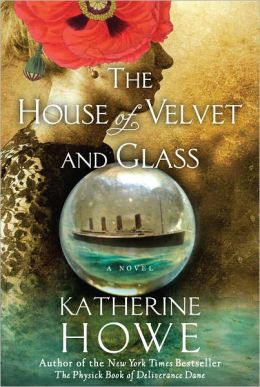This summer I was told a ghoulish story after dark in an old Civil War-era cemetery.
A group of friends and I had spent the afternoon out in the country in our friend Neal's uncle's pasture in south central Nebraska shooting pistols, shot guns and scope-rifles. This was a new experience for many of us city folks. We'd climbed into the back of Neal's pick-up - some of us hanging on in the back - and he took us over hills and ruts and around grazing, jaded cows to the place where he'd set up targets. We plugged our ears, shot at Diet Coke cans with a scope-rifle, hit clay pigeons with a shot gun and generally had a good time as the sun went down and the full moon showed its face.
Neal told us the pasture we were shooting in was not far from the site of an Indian battlefield. It turned out to be the prelude to the night's next activity. He took us over dirt roads and onto a path that meandered down through and behind a corn field. At the end of this road was the Farmers' Valley Cemetery - complete with the Nebraska marker - tucked away out of sight.
Among the graves were Civil War veterans and their families, some of the first settlers of in that area, children who had died young in skirmishes with the Sioux. It was the quintessential prairie graveyard, small and understated, rich in history. We walked around with flashlights, looking for names of the veterans, amazed that the stones were still legible even after 150 years. Then, as the night breeze picked up and got chilly, Neal told us a chilling tale.
 |
| I took this photo as we left. It was about 11 or midnight. |
Among the graves were Civil War veterans and their families, some of the first settlers of in that area, children who had died young in skirmishes with the Sioux. It was the quintessential prairie graveyard, small and understated, rich in history. We walked around with flashlights, looking for names of the veterans, amazed that the stones were still legible even after 150 years. Then, as the night breeze picked up and got chilly, Neal told us a chilling tale.
He and his brothers had been staying in a cabin not far from where we were standing one night several years ago when they heard the sound of hammering and incantations. Needless to say, they lay in terror that night. The next morning, one of the flat stone-slab graves had been broken into and the body removed. Later on, a group of satanists were arrested in connection to the theft. Neal told us with a deadly-serious expression that these satanists had planned to smoke the bones. When we saw the grave, the stone shards were patched, but the evidence of their task remained. A chill traveled down my spine. Something rustled far off in the trees, or perhaps in the corn field. My spine tingled. We all shivered.
It was hard to tell with Neal's expression if he was kidding us, or if he'd invited friends along to scare the living daylights out of us. We saw no ghouls, living or otherwise, but I know I felt something... some awareness of the past that hadn't been there before. The dark deeds of others can mark a place in ineffable ways.
It was hard to tell with Neal's expression if he was kidding us, or if he'd invited friends along to scare the living daylights out of us. We saw no ghouls, living or otherwise, but I know I felt something... some awareness of the past that hadn't been there before. The dark deeds of others can mark a place in ineffable ways.
I kept thinking about the story of the theft of bones and how the real mysteries of this world are the living ones.
In August, just weeks after the group of us had been there, an eighteen year old was arrested for vandalizing over 50 tombstones in Farmers' Valley. He was charged with criminal mischief, and the local community rallied together in September to begin repairing the damage. A Journal Star article conveys the sense of loss this act created; the cemetery is history, personal history, and it must be guarded and cared for and visited. I am so glad I saw it when I did.
I've found the Farmers' Valley Cemetery on Rootsweb, which tells the story of Marion Littlefield's death in battle with the Sioux, the arrival of Scottish settlers to the area, and the hard lives that were lived out here. This little slice of history is just south west of Henderson, Nebraska in Hamilton Co. Oh, the stories this ground can tell.
In August, just weeks after the group of us had been there, an eighteen year old was arrested for vandalizing over 50 tombstones in Farmers' Valley. He was charged with criminal mischief, and the local community rallied together in September to begin repairing the damage. A Journal Star article conveys the sense of loss this act created; the cemetery is history, personal history, and it must be guarded and cared for and visited. I am so glad I saw it when I did.
I've found the Farmers' Valley Cemetery on Rootsweb, which tells the story of Marion Littlefield's death in battle with the Sioux, the arrival of Scottish settlers to the area, and the hard lives that were lived out here. This little slice of history is just south west of Henderson, Nebraska in Hamilton Co. Oh, the stories this ground can tell.

